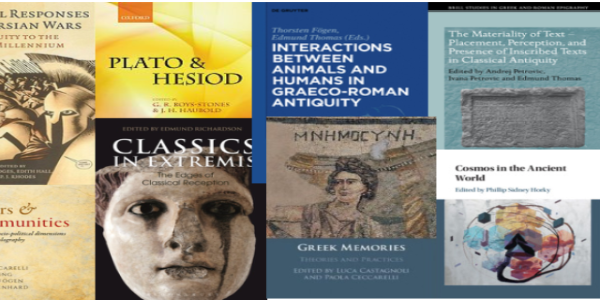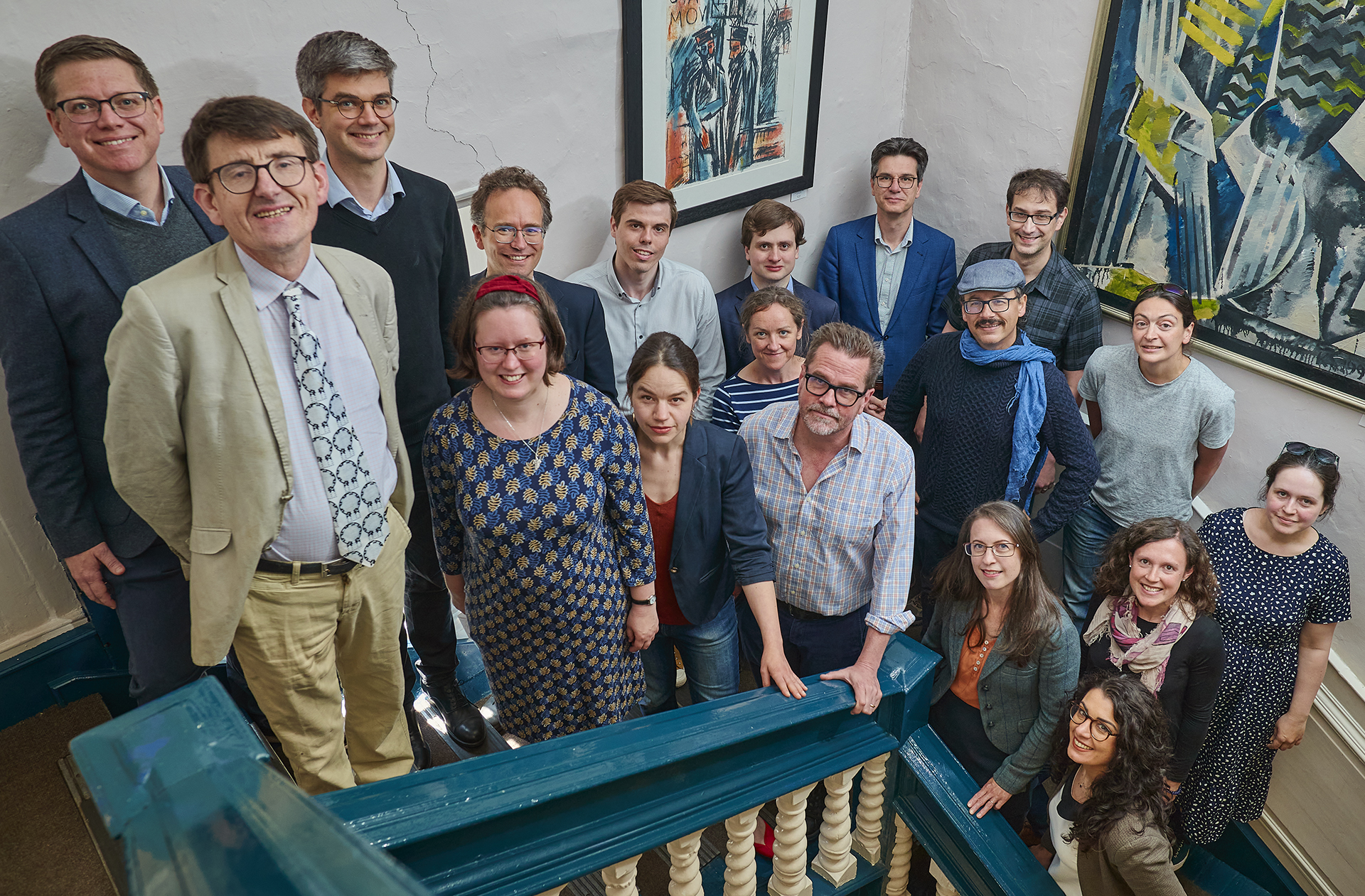Annual Research Theme

The Department’s Annual Research Theme encourages the exploration of innovative subjects emerging at the intersection of two or more members of research staff working in relatively diverse areas, and aims to be an engine for creating new agendas through fresh subdisciplinary collaborations. We normally reserve a number of slots from the Department’s Research Seminar for the theme, and provide funding for a dedicated international conference. The Research Theme is ultimately directed towards publication, often in association with postdoctoral researchers, visitors and graduate students. A series of edited collections has appeared with OUP, CUP, de Gruyter and Brill.
Annual Research Theme 2025/26: Writing from the Margins: Decolonising Ancient Authorship
Recent trends in Classics scholarship have focused on widening access to the discipline and concomitantly, widening definitions of its content. The move to decolonise Classics has encouraged fruitful study of marginalisation and alterity in the ancient world as well as heightening disciplinary awareness of how social and racial prejudices can influence Classics’ curricula and research agendas.
Taking inspiration from this disciplinary self-reflection, this year's research theme adopts a decolonising approach to ancient authorship. It contests the traditional view of ancient authors as elite individuals writing for elite audiences and expands the very concept of authorship to explore the roles played by socially marginalised and overlooked groups in the creation, preservation, and dissemination of ancient texts. What relationships can be traced between social status, identity markers, and literary production in the ancient world? How were slaves, freedmen/freedwomen, and non-citizens involved in the creation of ancient texts? How can we better appreciate texts’ dissemination and preservation by anonymous or uncredited intermediaries such as scribes, pedagogues, graffitists, and performers in the theatre? Building on recent contestation of rigid identity categories, we see ‘status’ itself (in terms of class, race, ethnicity, (dis)ability, citizenship) as fluid and moveable, with individuals moving between enslaved/free, elite/non-elite, citizen/foreigner, disabled/abled during their lifetime or, in some cases, depending on the eye of the beholder. Through a series of seminars and a concluding conference, we consider how various and multivalent status groups participated in ancient literary production, and how their often-unacknowledged influence affects our understanding of ancient texts.
Seminars
22 October 2025: Ella Kirsh (Cambridge)
29 October 2025: Candida Moss (Birmingham)
14 January 2026: Lilah Grace Canevaro (Edinburgh)
11 February 2026: Katherine Backler (Oxford)
29 April 2026: Robin Kreutel (HU Berlin)
(seminar titles to be confirmed in due course)
Previous annual research themes:
- Aristotle Beyond the Academy (2024/25)
- Syriac Studies (2023/24)
- Classical Presences in the North East (2022/23)
Find out more
Publications
Read the latest books written and edited by colleagues in our department.
Meet our staff
Learn more about the work and research specialisms of our colleagues.
Postdoctoral research funding
Find out about fellowship and scholarship opportunities to undertake research at Durham.
Events and seminars
View our events calendar for the latest research seminars and workshops.


/prod01/prodbucket01/media/durham-university/departments-/classics-and-ancient-history/47302-3941X1553.jpg)
/prod01/prodbucket01/media/durham-university/research-/research-institutes/institute-for-medical-humanities/books-2241631_1280.jpg)
/prod01/prodbucket01/media/durham-university/departments-/classics-and-ancient-history/Classics1611Jun-05-2023.jpg)


/prod01/prodbucket01/media/durham-university-business-school/Durham-Cathedral-drone-shot-.png)
/prod01/prodbucket01/media/durham-university/departments-/classics-and-ancient-history/59377.jpg)

